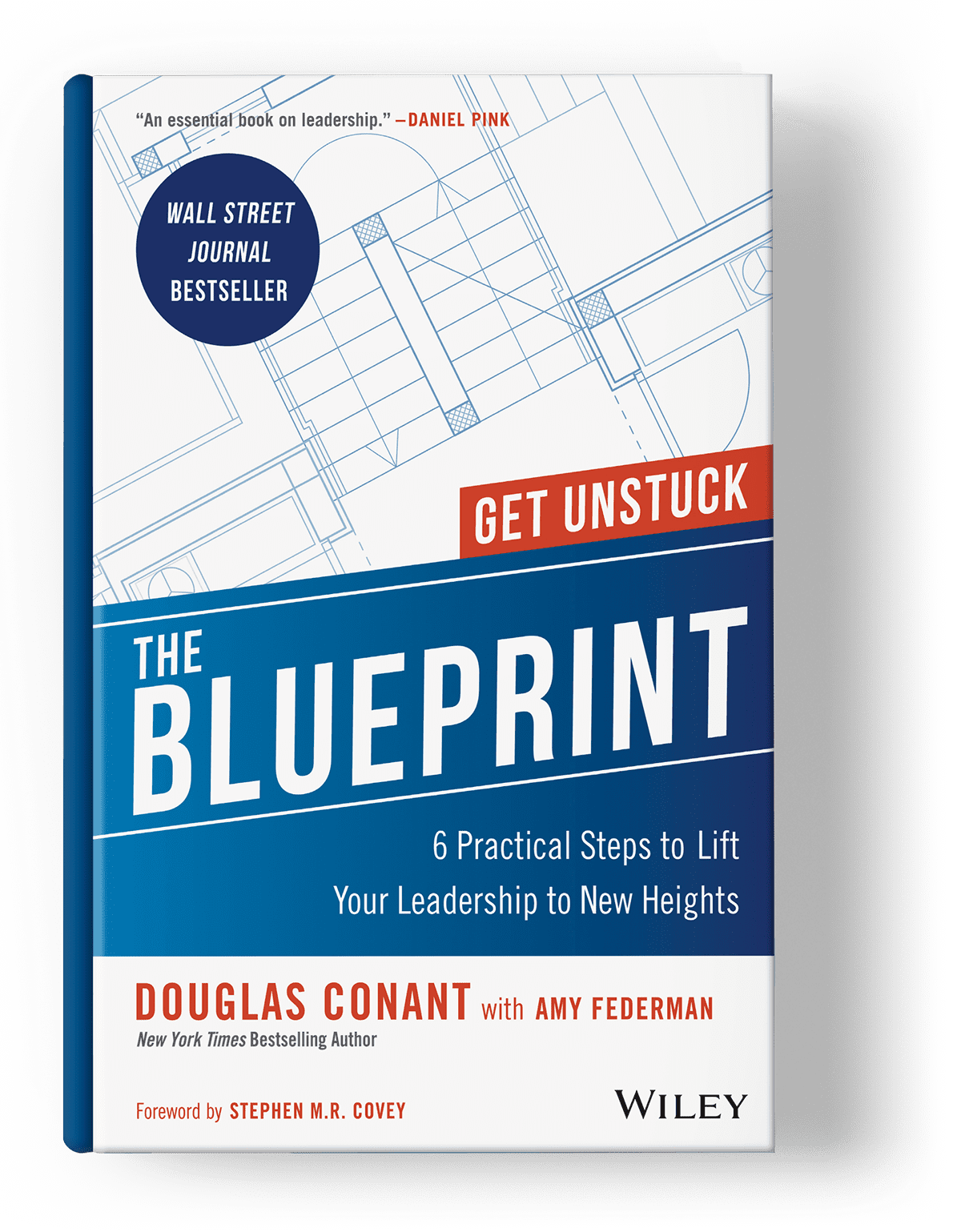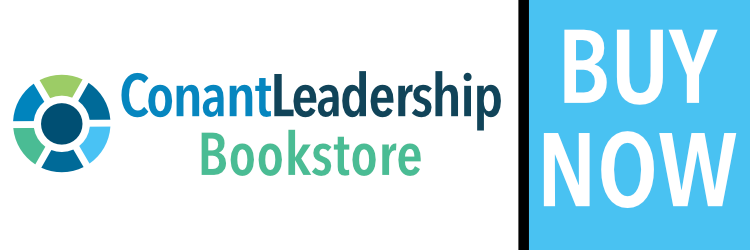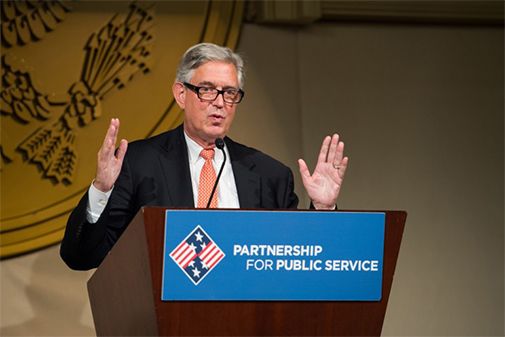In a previous life, before I was an entry level marketer at General Mills, before I was President of Nabisco, and before I became CEO of Campbell Soup Company or Chairman of Avon Products — I played tennis competitively. The sport was so much a part of my life that I attended college at Northwestern University on a tennis scholarship. It was a thrill and a challenge to play competitive tennis at a high level and I learned many lessons from my experiences – some of which I’ve chronicled here. One lesson that so profoundly affected how I lead that it merits being further developed was taken from the title of a book by Billie Jean King: the lesson that Pressure Is a Privilege.
The credit belongs to the man who is actually in the arena . . . who at the best knows in the end the triumph of high achievement, and who at the worst, if he fails, at least fails while daring greatly, so that his place shall never be with those cold and timid souls who neither know victory nor defeat. – Teddy Roosevelt
Pressure is often viewed as a negative force in our lives. Understandably so. Undue pressure can be an enormous cause of stress and turmoil. But each challenge that comes along also presents important questions that test our character, our approach to leadership, and our approach to life: Do we dare to engage in the face of such pressures? Do we have the gumption to give it our all, knowing full well that we may fall visibly short? Do we have what it takes step up to the stresses of life? It has been my experience that it is essential to find a way to respond to all of these questions with a resounding, “yes.”
In fact, I have come to view the inevitable periods of pressure that accompany leadership and life as a golden opportunity to do some of my best work when it matters most — and to engage with the people around me in a most meaningful way. The opportunity to perform under pressure, in the face of adversity, and to meet or exceed expectations is key to lifting our contribution profile over time. It seems to me that it is in those moments where the odds are stacked against us, when the heat is palpable and the stakes feel high, that, at our best, we can delight in rising to the challenge and prevailing. Or, at the very worst, in the words of Teddy Roosevelt — if we fail, at least we fail while “daring greatly” — which is a better fate than joining the ranks of “those cold and timid souls who neither know victory or defeat.”
If we want to win in life and level up our leadership, we can’t skirt pressures by playing it safe.
Ultimately, you can’t win if you don’t play. If we want to win in life and leadership, we can’t skirt pressures by playing it safe. We have to step into the ring, lean in to the punches, and do our darndest to come out on top. With that in mind, here are three important reasons that pressure can help make us better, help us succeed with integrity, and help us become more fully engaged in the pursuits of a full life.
1. Pressure makes us better. They say “necessity is the mother of invention.” I would also argue that “pressure is the mother of performance.” This holds true across disciplines – whether you are a tennis player, a Fortune 500 CEO, a painter, or a parent. Even if we are exceptional contributors who perform very well under normal circumstances, it is when challenges rear their heads that we are forced to apply all the knowledge and ingenuity that we can muster. If we have prepared properly, through training, practice, and an ongoing earnest effort, we can rely on that training in challenging times to help us be our most agile and creative in the moment.
Why does this work? Because it is widely accepted that we must thrust ourselves into unfamiliar situations or mindsets to truly develop. Hence the popular aphorism that, “Life begins at the edge of your comfort zone.” Since we often feel pressure in times of transition, change, or crisis – it naturally pushes us out of our comfort zone and forces us to grow. External pressure, whether a sudden change of deadline or an all-hands-on-deck fire drill, removes the need for us to engineer the discomfort necessary for growth; it drops us right into the situation and encourages us to respond in the best way possible while leveraging our unique skills and insights. Thriving under these conditions makes us even better for the next turbulent time and sharpens our skills for the day-to-day. And when we do falter, we may learn priceless lessons that we can apply for the rest of our lives.
Ultimately, you can’t win if you don’t play.
While having to work in a pressure-cooker all the time can certainly take its toll and become counter-productive over time, brief periods of high-pressure can meaningfully help us further hone our skills, perform better, and achieve breakthrough performance.
2. Pressure challenges us to stay honest. Pressure makes us better because we are forced to think creatively and to problem solve on-demand. But it doesn’t make us better if we sacrifice our character or use cheap workarounds. In other words, we won’t grow if we cheat, or break the rules, or go against our moral code. Because that’s too easy. And when things are too easy, they don’t help us improve. So, if we view pressure as a real test of our ability to think on our feet, to innovate, to thrive – then we should view it as an opportunity to do so within the confines of the given “rules” – whether they are rules that we have imposed on ourselves in keeping with our own personal code, or whether they are more public rules set by a third party.
In my experience, one of the most rewarding aspects of leadership is not only being put to the test with the opportunity to come out on top, but finding that you are able to prevail with your character intact. From my perspective, you either win with integrity or you don’t win at all. And, if you fail – you fail having stood firmly by your principles. Being able to look yourself squarely in the mirror is always a little bit of a win, even when it accompanies a loss. Embrace pressure as a challenge to uphold your character.
3. Pressure helps us engage with life more meaningfully. We can’t experience the thrill of high achievement if we don’t embrace all aspects of our life and leadership journey – both the ups and the downs. Arguably, the “ups” are less sweet if the “downs” don’t test us in some way. There is a well-known Truman Capote quote that speaks to this point: “Failure is the condiment that gives success its flavor.” To me this means that without saying “yes” to the challenges thrown in our path, and persisting when things get hard, we will never fully appreciate the fruits of our labor. If the climb is too easy, will we appreciate the view from atop the summit? If we consistently take the easy route, we consistently deprive ourselves of the pride of having toiled and triumphed – and we also miss out on the lessons waiting for us in times of failure.
Pressure gives us the opportunity to experience the joys and pitfalls of life more fully and to savor them more completely. Life is short. We can’t let opportunities to test ourselves pass us by. Pressure is the privilege to try ever-harder, to win (and lose) bigger, and to experience the full range of feelings that life has to offer us for the brief time we’re here. We ought to grab onto it.
All in all, there is no greater honor and no greater exhilarant than answering the call and choosing to “go for it” when the going gets tough. When we rise to the moment with integrity and gusto, we always improve (even when we don’t win), and we let people know they can count on us to charge into the arena and fight the good fight, no matter what. Pressure helps us grow, helps keep us honest, and helps us engage with life. Think of this the next time you get an urgent midnight call or your big presentation gets moved from next week to tomorrow morning – take a deep breath, have faith in your abilities, and buckle in for a rewarding adventure towards personal growth.
Learn more ways ConantLeadership can help
Take the first step towards fundamentally lifting the trajectory of your leadership. The BLUEPRINT Boot Camp will challenge and enlighten you as you explore thought-provoking questions and unearth career-altering insights.
Emerge from this boot camp armed with all the tools needed to continue to develop your leadership model throughout the course of your career. An enlightening pre- and post-program curriculum of correspondence, interaction, reading, and collaborative group work provide an ongoing leadership learning experience like no other.






0 Comments